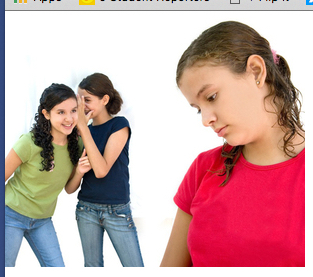![One of the problems faced by teens these days is social anxiety. [MiamiTeenCounseling.com]](http://www.jstudentboard.com/reporter/wp-content/uploads/2016/01/teen-social-anxiety-300x265.jpg)
High school is usually a stressful time for students, who have to struggle with not only academics and extracurriculars but also being socially accepted and finding their identities. Schools have learned to alleviate student stress by providing support groups, counselors, and assemblies for students.
High school counselors can help combat student stress. Counselors help students and teachers connect and communicate better if the student is struggling in a class.
“What I try to do is to get to know who are struggling with anxiety and stresses in our school and who English-language learners are on campus. I monitor them, see what their grades are, and gather information about how they are doing in their classes. I like to call stressed student in to meet them to let them know that I’m here to help them. For students who are having problems in classes, I offer them time and they can come see me so that I can hopefully help them,” Tania Mooser, a teacher specialist at Crescenta Valley High School (CVHS), said.
“Every Monday and Tuesday at lunch or after school, she regularly offered us extra classes so that we can review what we have learned in class and this improved my grade a lot, relieving my stresses and personal struggles in the school campus,” Judy Kim, a junior at CVHS, said.
While counselors are mostly for academic and college help, psychologists and therapists at schools allow students to talk about their other problems.
“It’s very helpful having therapists and a psychologists at Harvard-Westlake because they are always there for students to talk to if they need help. I talk to them about my depression and anxiety and they really helped my emotional health. I think all high schools should have therapists and psychologists,” an anonymous junior, at Harvard-Westlake School in Los Angeles, said.
Students can also confide with other fellow students. At Harvard-Westlake, Peer Support is a club designed for students to confidentially share their problems in a safe environment and get advice from other students every week. Students in Peer Support have often said that their group is their second family where they are able to openly talk about things they don’t want to talk about to teachers and parents.
“I think peer support is a great program at our school because a lot of students are stressed by academics, parents, and social issues so confiding in their peers is a good way to deal with some issues and release stress,” Kami Durairaj, a junior involved in Peer Support said.
Teen suicide is also a big problem that high schoolers face. According to NoBullying.com, almost 5,000 teen lives are lost to suicide.
Schools are bringing more awareness and help on this issue. At Harvard-Westlake, Active Minds, a nonprofit organization bringing awareness to mental health brought mental health advocate Jordan Burnham to talk to students about suicide.
Burnham, who tried to commit suicide during his senior year of high school by jumping out of his nine-story apartment building, talked about his own struggle with depression and how he overcame it.
“I was going to school with a mask on my face, hiding the fact that I felt depressed, I felt lonely, and I felt that I didn’t belong. Going to school with fake laughs and fake smiles,” he shared during the assembly.
Burnham hopes by sharing his story he brings more awareness to mental health and reduce the stigma around mental-health disorders. He urged students to seek help and to make mental-health awareness more widespread and relevant.
Tomorrow: Part 2
This story was written by: Rachel Lee, Grade 11, Harvard-Westlake School, Los Angeles, Calif.; Ha Lin Kim, Grade 10, Crescenta Valley High School, La Crescenta, Calif.; Joann Song, Grade 10; Crescenta Valley High School; Bryan Jun Hwan Kim, Grade 9, Irvine High School, Irvine, Calif.; Alison Oh, Grade 9, Harvard-Westlake School.

